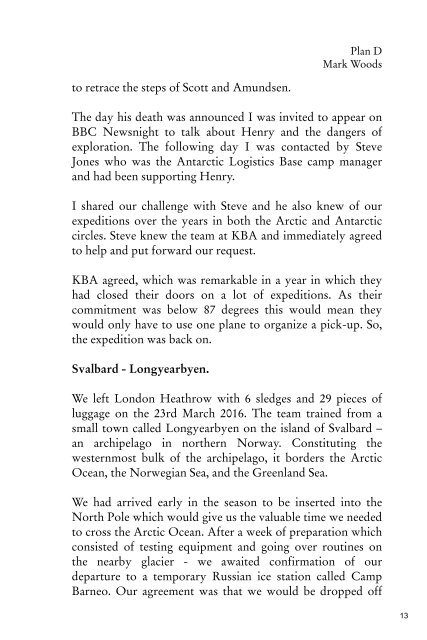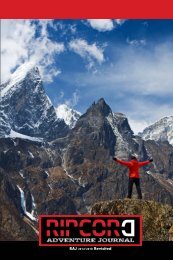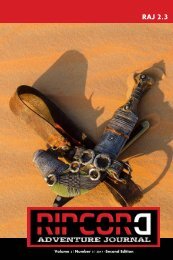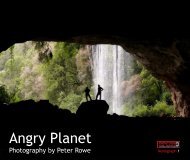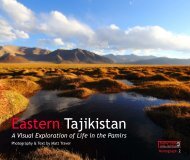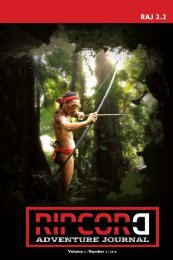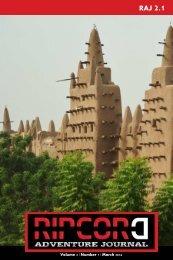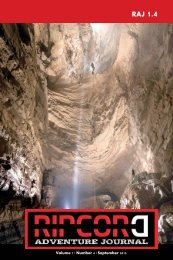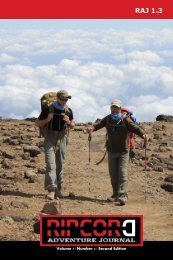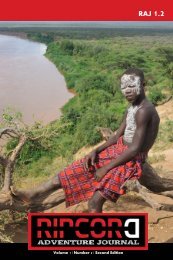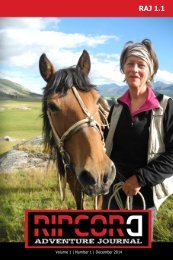Ripcord Adventure Journal 2.4
Our final issue of volume 2 is quite a mixture of adventure and exploration of the world's polar regions, deserts, oceans, mountains and jungles. In our Guest Editorial, Leon McCarron ventures in to the hills of Jordan as part of his 1000-mile journey on foot, across the Middle East, when he encounters an unexpected musical interlude on a lonely hillside. Planning is essential for major expeditions, even more important to have several back-up plans in case the first one or two, or three do not pan out as expected. Mark Wood brings us behind the scenes of planning for a polar expedition. Technology in the classroom has been touted for more than 2 decades as the next big thing. Here, Joe Grabowski, whose nascent organisation "Exploring by the Seat of Your Pants" has demonstrated that indeed technology can be the medium by which exposure to new and exciting educational contexts can be brought in to the classroom from the real-life connections with explorers, conservationists and scientists in the field. Former Marine Commando, John Sullivan gives us an introduction to what it takes to survive in the desert using the skills and experience he has built up from his time in the forces, leading expeditions and working with film crews on location. What does it take to circumnavigate the globe on one's own, what drives an adventurer to take on and complete such demanding challenges? Erden Eruc takes us with him on his life's journey across oceans and continents. Finally, we catch up with emergency medical doctor Claire Grogan and Mark Hannaford of World Extreme Medicine to discuss the fast-paced world of extreme medicine.
Our final issue of volume 2 is quite a mixture of adventure and exploration of the world's polar regions, deserts, oceans, mountains and jungles.
In our Guest Editorial, Leon McCarron ventures in to the hills of Jordan as part of his 1000-mile journey on foot, across the Middle East, when he encounters an unexpected musical interlude on a lonely hillside.
Planning is essential for major expeditions, even more important to have several back-up plans in case the first one or two, or three do not pan out as expected. Mark Wood brings us behind the scenes of planning for a polar expedition.
Technology in the classroom has been touted for more than 2 decades as the next big thing. Here, Joe Grabowski, whose nascent organisation "Exploring by the Seat of Your Pants" has demonstrated that indeed technology can be the medium by which exposure to new and exciting educational contexts can be brought in to the classroom from the real-life connections with explorers, conservationists and scientists in the field.
Former Marine Commando, John Sullivan gives us an introduction to what it takes to survive in the desert using the skills and experience he has built up from his time in the forces, leading expeditions and working with film crews on location.
What does it take to circumnavigate the globe on one's own, what drives an adventurer to take on and complete such demanding challenges? Erden Eruc takes us with him on his life's journey across oceans and continents.
Finally, we catch up with emergency medical doctor Claire Grogan and Mark Hannaford of World Extreme Medicine to discuss the fast-paced world of extreme medicine.
Create successful ePaper yourself
Turn your PDF publications into a flip-book with our unique Google optimized e-Paper software.
Plan D<br />
Mark Woods<br />
AAAAAAAAAAAAAAAAAAAAAAAAAAAAAAAAA<br />
AAAAAAAAAAAAAAAAAAAAAAAAAAAAAAA<br />
to retrace the steps of Scott and Amundsen.<br />
The day his death was announced I was invited to appear on<br />
BBC Newsnight to talk about Henry and the dangers of<br />
exploration. The following day I was contacted by Steve<br />
Jones who was the Antarctic Logistics Base camp manager<br />
and had been supporting Henry.<br />
I shared our challenge with Steve and he also knew of our<br />
expeditions over the years in both the Arctic and Antarctic<br />
circles. Steve knew the team at KBA and immediately agreed<br />
to help and put forward our request.<br />
KBA agreed, which was remarkable in a year in which they<br />
had closed their doors on a lot of expeditions. As their<br />
commitment was below 87 degrees this would mean they<br />
would only have to use one plane to organize a pick-up. So,<br />
the expedition was back on.<br />
Svalbard - Longyearbyen.<br />
We left London Heathrow with 6 sledges and 29 pieces of<br />
luggage on the 23rd March 2016. The team trained from a<br />
small town called Longyearbyen on the island of Svalbard –<br />
an archipelago in northern Norway. Constituting the<br />
westernmost bulk of the archipelago, it borders the Arctic<br />
Ocean, the Norwegian Sea, and the Greenland Sea.<br />
We had arrived early in the season to be inserted into the<br />
North Pole which would give us the valuable time we needed<br />
to cross the Arctic Ocean. After a week of preparation which<br />
consisted of testing equipment and going over routines on<br />
the nearby glacier - we awaited confirmation of our<br />
departure to a temporary Russian ice station called Camp<br />
Barneo. Our agreement was that we would be dropped off<br />
13


